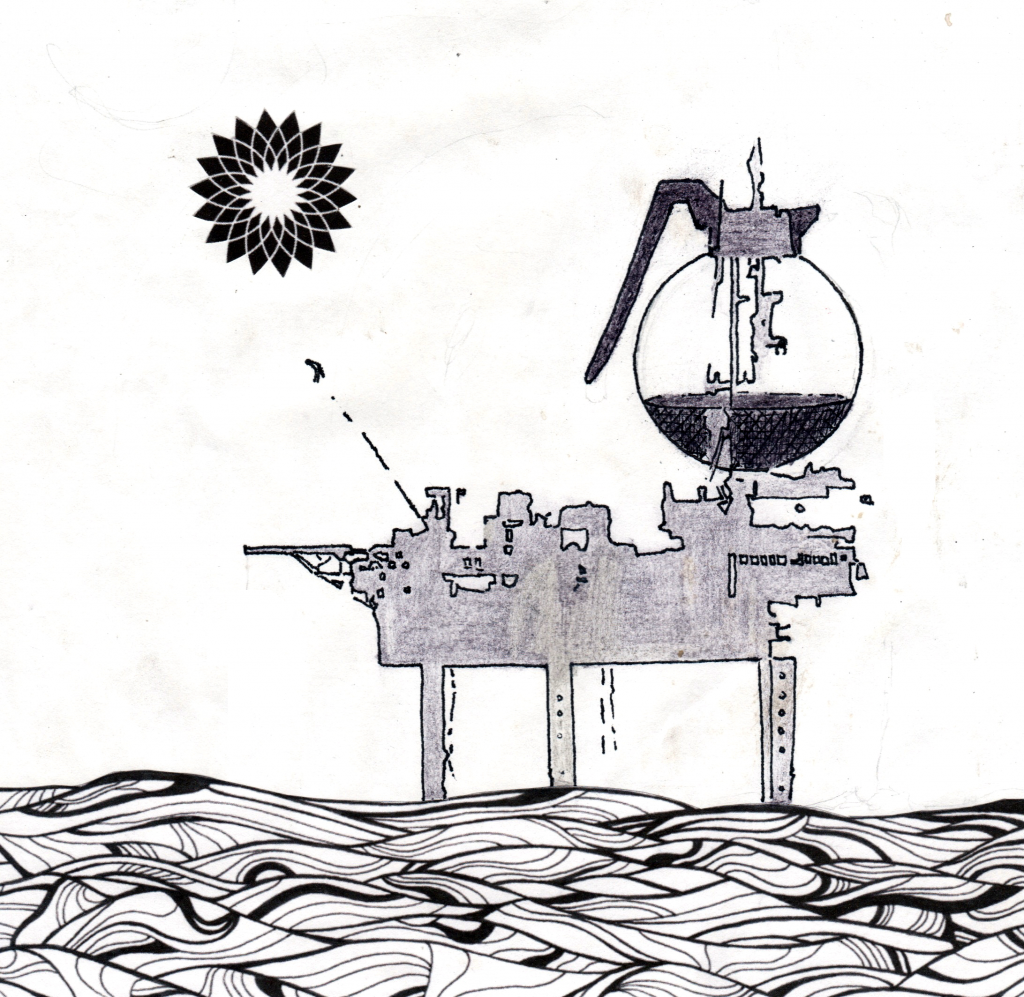“Laws are spider webs through which the big flies pass and the little ones get caught”
Originally when I was working on this article I passed my first draft through the hands of one of the Pelican staff and received a look of discomfort. The reason for this is in briefly mentioning the famous case of Liebeck vs. McDonalds (the hot coffee lawsuit), I had declared the case a “ridiculous lawsuit that is so goddam American”. What I did not know of this case is that Ms. Liebeck had received third degree burns on her inner thighs, perineum, buttocks, including genital and groin areas. It was more than a simple scalding that the media had portrayed. McDonalds tried to give her a measly $800 dollars when she complained to their headquarters. So in the end, unable to cover the medical costs, she got a lawyer and won a case that shocked the nation.
My initially problematic opinion of the case can be attributed to the media coverage I received when I was younger, but also to my own experience. Ever since I was younger, suing seemed an American form of lotto where people try to win big by taking another party to court. I still remember when I was growing up a friend’s family was being sued by another family whose son, Clint, had broken a leg on my friend’s property. My friend’s family had left a recently-dug hole unattended until the local nursery delivered a tree whose home was to be that very hole. In the end, my friend’s family lost and was forced to pay a large sum to the complainants.
In a case such as this, I always thought the reasonable logic was that everyone is liable for the placement of their own feet. This boy Clint, who broke his leg, was known by us kids to always carry a slingshot from which he would fire crabapples at us while he ran around like a banshee all over the neighborhood in some self-proclaimed black-ops mission. It was hard to take sides with such a bully, but in the following essay, I’ve taken a closer look at bullies that would put Clint to shame, and they are not individuals at all, they are corporations.
Corporations are held accountable for defective products or practices by tort laws. Tort laws are important legislative measures. Simply put, tort laws are liability lawsuits, which can allow individuals to bring corporations to court for wrongdoing and hold them accountable to the law. Tort reform, or “tort deform” as one politician dubbed it, has been at the front burners of debate for many years now. From fast-food chains to the nation’s pharmaceutical companies, corporations have spent millions of dollars towards weakening tort laws in order to escape liability lawsuits, one of their biggest fears.
For example, a new ruling passed this year has made it harder for foreign plaintiffs to hold corporations liable for their misdeeds. Residents of Niger Delta suing Royal Dutch Shell must now resubmit their lawsuit to not target Royal Dutch Shell at all. It was tort law which allowed Stella Liebeck to be awarded over two million dollars from McDonalds on the grounds that her coffee was too hot and was the reason for her injuries (Liebeck vs McDonalds). Under tort law, there are many meritous lawsuits that have been brought against corporations to challenge their power (see Doe v. Unical; Bowoto v Chevron; etc.).
On September 17, 2010, during the trial of Kiobel (one of the Ogoni Nine) vs. Royal Dutch Shell, the US 2nd Circuit Court of Appeals ruled that the Alien Tort Statute (ATS), the statute which allows foreigners to bring human rights violations to the United State’s judiciary, can no longer be used in suits against corporations. Corporations were declared exempt from the statute on the grounds that it is intended only for suits brought against individuals, not abstract entities. The Alien Tort Statute has been in place for over two centuries, and prior to the September 17th ruling, the ATS had allowed foreigners such as a group of Nigerian plaintiffs who sued Chevron and a group of Colombian plaintiffs who sued Drummond to file claims of human rights abuses against their corporate oppressors (although the corporations won in both of these cases). The September 17th ruling appears to be in reaction to the June 8th, 2009 victory of the Saro-Wiwa Family against Royal Dutch Shell, a case which ended with Shell paying 15.5 million dollars to the victim’s family in order to settle out of court.
The Saro-Wiwa Family vs. Royal Dutch Shell lawsuit began in 1996 when the Center for Constitutional Rights picked up the case brought against the corporation and the CEO of Shell Nigeria, Brian Anderson. The charges filed against Shell and Anderson detailed a series of human rights violations including murder, torture, false arrest and numerous assaults on the Ogoni way of life. Ken Saro-Wiwa was an activist, author and playwright who, thanks to the influence of Royal Dutch Shell in collaboration with General Sari Abacha’s military dictatorship, was hanged in November 2005. Saro-Wiwa was one of the Ogoni Nine, which included Barinem Kiobel (refer to Kiobel vs. Royal Dutch Shell above). All of the Ogoni Nine were harsh critics of the oil extraction taking place on their ancestral lands, extraction which was ruining the population’s way of life and environment. For 12 years, from 1996 until May 2009, Shell badgered the courts not to review the charges brought by the Saro-Wiwa family, but on the 26th of May, 2009, the voices of the Ogoni people were heard. In less two weeks, the threatened beast of capitalism settled out of court, all while maintaining its denial of any wrongdoing.
This victory, while it may have thrown light on some of the downtrodden of late capitalism, has also carried a shadow: the exploited classes cannot be victors in the rigid caste system set up by the global economy. Just as corporations had begun to shake in their boots, the powers that maintain capital found a way to make sure it would never happen again. Now, under the September 17th ruling, others of the Ogoni Nine such as the Kiobel family must resubmit their lawsuits as not against corporations at all. They’ll have to try and implicate a specific individual, limiting their cases and making them harder to prove.
The September 17th ruling handed down by the 2nd Circuit Court was based on the fact that corporate liability is not a practice carried out by international law. This corporate amnesty practice was structured under the London Charter, which led the Nuremberg Tribunal after the close of the second world war. During these trials, corporations which assisted the SS and Nazis were excluded from the tribunal on the grounds that only individuals could be held accountable and not “abstract entities.” One example is the case of IG Farben, now Bayer, which used Jewish labor in Auschwitz to produce Zyklon B, the “pesticide” used in the gas chambers. Thirteen individuals were prosecuted during the trial, but the corporation itself was not held accountable.
As a side note, upon military victory most expansionist nations will excuse the war crimes of the defeated nation in order to hide the crimes of the victor. The Allied nations, for instance, did not prosecute the Axis nations for the castration and sterilization of targeted human populations because the United States was at the height of its own Eugenics movement. For more information, look into the Tribe of Ishmael and the Indiana Plan.
Back in the present day, the American public resides in a country where lobbying and special interests play into both lawmaking and policy. Lawsuits are becoming a one-sided affair in which people are having a harder time holding corporations and government agencies– such as the NOPD– accountable, while the U.S. government and corporations are bringing more frequent lawsuits against citizens, for example the suits brought against protesters and activists (Detroit, Oakland, G20, etc.) or farmers (by Monsanto and Cargill). These court cases can consume so much time and money that an average citizen is often forced to settle out of court whether or not there was any legitimate offense. Of course, if a defendant is found guilty, it is becoming more likely that his or her prison will be owned and maintained by a corporation, and that inmates will be used for profit, packing and processing for Starfucks, Victoria’s Secret, Chevron, IBM, Texas Instruments, Microsoft, or many others.
Not only are citizens at risk in their own homes due to foreclosures, but they are also at risk at their jobs where corporate liability seems miniscule. Additionally, the residents of the Gulf Coast are threatened by their own air, water, land, and food, due to corporate negligence and government acquiescence. If the ATS dismissed corporate accountability abroad, then how long until it does something similiar for domestic lawsuits? Will the next BP (big problem) receive corporate amnesty instead of being held culpable under liability tort laws? Is this what tort reform is pushing towards?
Recently, I was talking to a local on a fishing pier in Navarre, Florida, which still shows signs of the oil spill with a littering of tarballs. He was telling me about his good friend who fishes mullet for a living. The fisherman received a hundred thousand dollar settlement from BP for his losses. So, I asked him, “What has the damage been like? How’s the fishing now?”
He said, “Well, it seems to be picking up, but there’s a lot even the fisherman can’t see.” He paused. “Probably gonna be long-term damage.”
I thought of people in the food service industry who have received, or are waiting for, payments from BP. “So, BP is giving short-term money for long-term damage?”
The Florida local laughed. “Yeah, they’re smart.”
Share